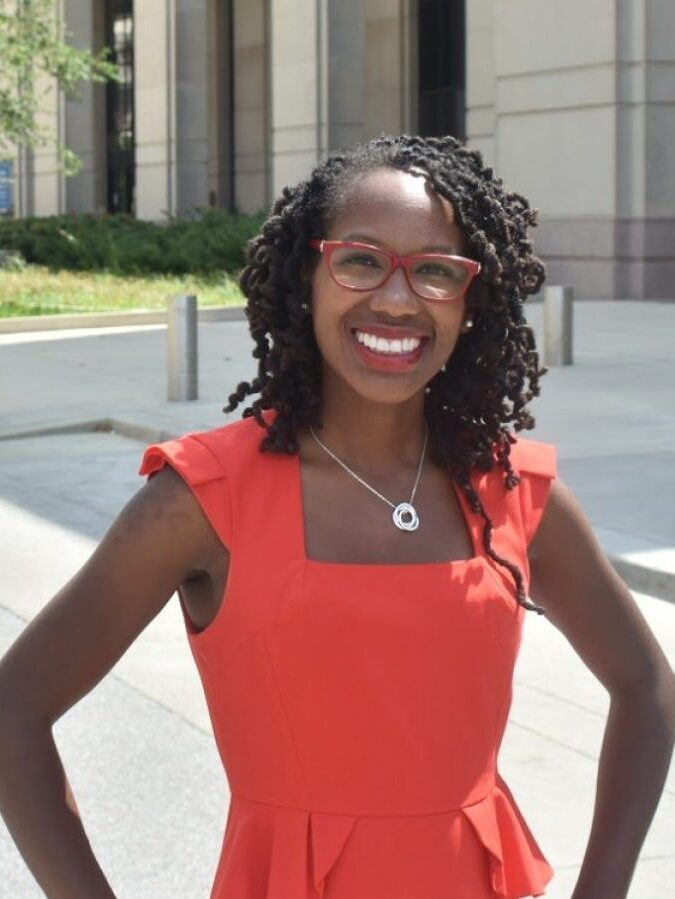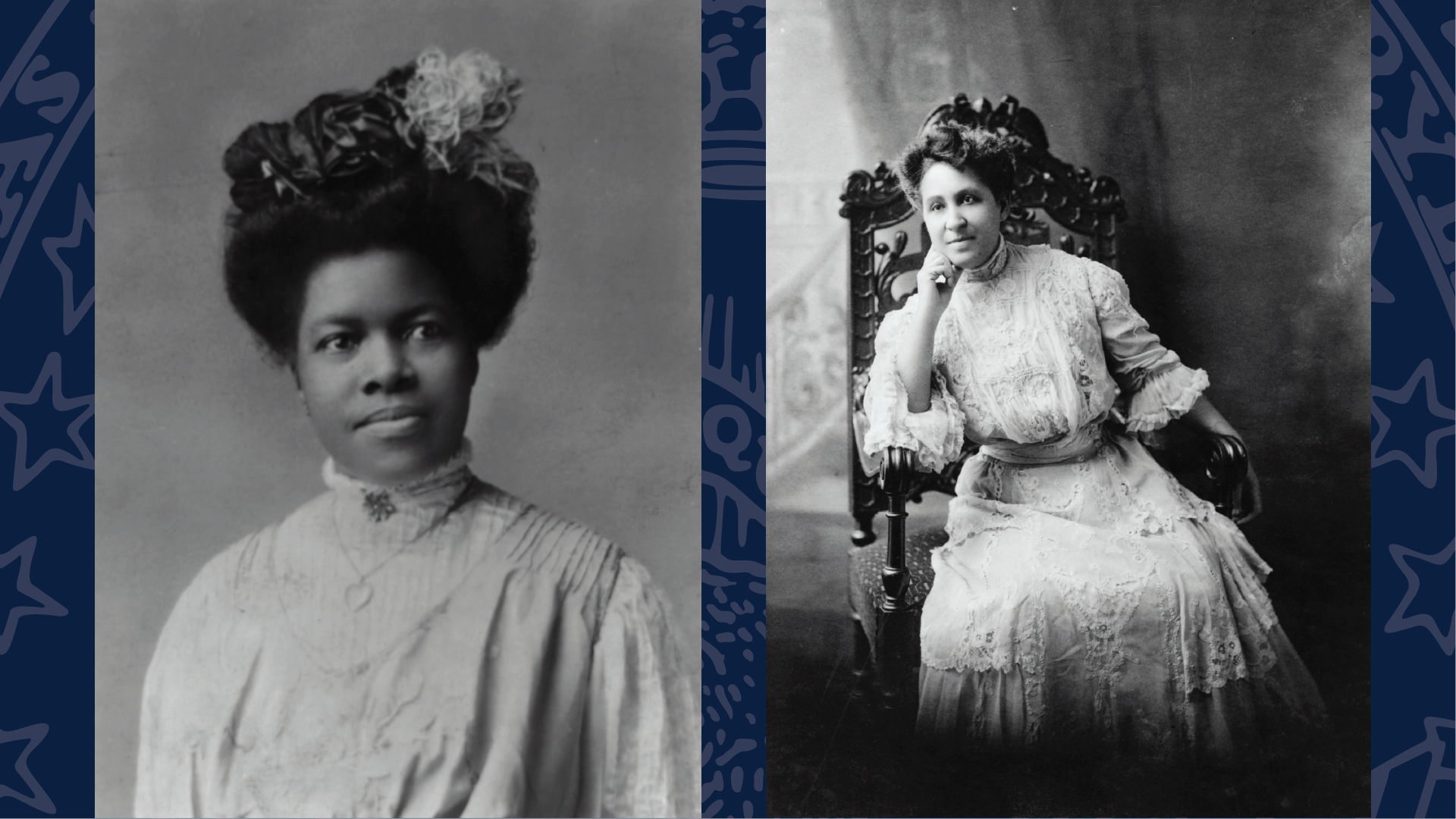Nadia Brown Discusses History of Nineteenth Amendment and Existing Voter Suppression
Though this year marks the 101st anniversary of the ratification of the Nineteenth Amendment, voting rights in the United States are still inaccessible for many. Nadia Brown, Ph.D. Professor of Government and director of the Women and Gender Studies Program discusses the history surrounding the suffrage movement and how voting rights must be changed to create a more just society for all.
History of Herstory

Professor Nadia Brown
In 1920, the Nineteenth Amendment was signed into law by Woodrow Wilson. Its ratification came after half a century of activism by suffragists, but its passing was also caused by a huge wave of support from Republicans who were attempting to check the power of the Democratic Party.
Brown explains that prior to this, many were against universal suffrage, particularly as far as it gave women the right to vote.
“The right for women to vote was born out of a larger conversation around universal suffrage and what would that look like for the United States,” says Brown. “Those who held power in the US at that time were against universal suffrage, so different groups at different times achieved piecemeal rights to the ballot and the Nineteenth Amendment was one of these.”
Women of all races and gender identities were involved in the suffrage movement. However, current history education often describes white women like Elizabeth Cady Stanton or Susan B. Anthony as being at the forefront of the cause and ignores the contributions and leadership of women of color.
Brown says that her own Delta Sigma Theta Sorority, Inc, which is a historically African American sorority, was founded in 1913 on Howard University’s campus by 22 collegiate women whose first public outing was to walk in a suffrage march. These marches were segregated, though Black activists like Ida B. Wells Barnett refused to walk in the back.
“While all of the women that marched, regardless of race, were subjected with really vitriolic responses from the onlookers, for the women of color who marched at the back there was no police protection,” Brown explains. “People jeered at them, spit at them, threw bottles at them, pulled their hair — some women were even hit. Black women like Mary Church Terrell and Nannie Helen Burroughs, who were also facing injustices around race and gender, put their lives on the line because they felt that women’s suffrage was so important to them that they had to be there.”
Unequal Access for All
Even after women gained the right to vote with the ratification of the 19th Amendment, voting access was still restricted for Black, Latinx, Indigenous and Asian women due to racist voter suppression laws. Though the Voting Rights Act of 1965 was a victory in the US for dismantling voter suppression, Brown says that several voting practices in America today still make it difficult for marginalized communities to cast their ballot.
“The United States sees voting as a privilege and not as a right,” Brown says. “We are the only industrialized nation that puts up so many barriers for our citizens to vote, whether it’s voter registration, which most other Western democracies don’t require, or voting election days, which in the US are held on the first Tuesday in November and in other nations it’s on a Sunday or Saturday or it’s a national holiday so that everyone can get off to vote.”
Brown also notes that America incarcerates the largest number of its population of any Western democracy and subsequently restricts the right to vote for people who are felons, even after those individuals have paid their debt to society.
Voter ID laws impact numerous people in America including women who have changed their name due to their marital status or for transgender and non-binary folks who use different names than what is listed on their birth certificate.
In African American and Eastern European communities, children are often named after their parents. This prevalence of seniors, juniors and the thirds can cause complications due to improper record keeping and prevent many individuals from minority communities from voting.
As part of her classes, Brown pushes her students to question why they think these laws exist, who they think are benefitting from them and who do they think should have the right to vote. She says that many students at first believe that some individuals should be restricted because of the recency of their immigration, their religions or their criminal records, but that their opinions change over time.
“When I first ask this question, many students have the opinion that there are some people who are unworthy of voting or unworthy of having a voice in government because of their past behaviors or their lack of knowledge,” explains Brown. “I do this as a learning exercise to get them to question why we do this as a society, what groups of people do we think are worthy and how are these tied to historical tropes and stereotypes that are rooted in white supremacist ideals of nationhood and belonging.”
At the core of her research, Brown is dedicated to expanding representation in the electorate. One of the ways that she says this can be done is by removing unfair voting legislation so that all Americans could vote for more diverse representatives.
Currently, the majority of state legislators are oftentimes white and from predominantly wealthy backgrounds, which ultimately causes policies to be passed or upheld that negatively impact those who are already underrepresented.
“Many economic policies that have disparate impacts would not happen, or would happen to a lesser extent, if there were different people who had voices at the table, and in order to get those people at the table, you have to have an electorate that looks like them,” Brown explains. “The majority of Congress has never dealt with food insecurity, housing insecurity or domestic violence. So it’s so important that we have people who’ve had those experiences in government and we don’t get them in government unless people that look like them have the ability to vote.”
After the Voting Rights Act was passed in 1965, there was an explosion of Black elected representatives because communities that were previously barred from voting effectively due to the poll tax, grandfather clause and Jim Crow-era legislation were suddenly able to effectively cast ballots. Brown says that today we are seeing a new wave of voter suppression legislation being passed and that it is important to fight to ensure that everyone has equal access.
“I see this as an opportunity to expand the American democracy project and an opportunity to bring more voices to the table,” says Brown. “This is a chance to make us live up to the framers’ ideals of being a more free and just society that gives voice to those who have been persecuted and marginalized and to make this place a better country.”
